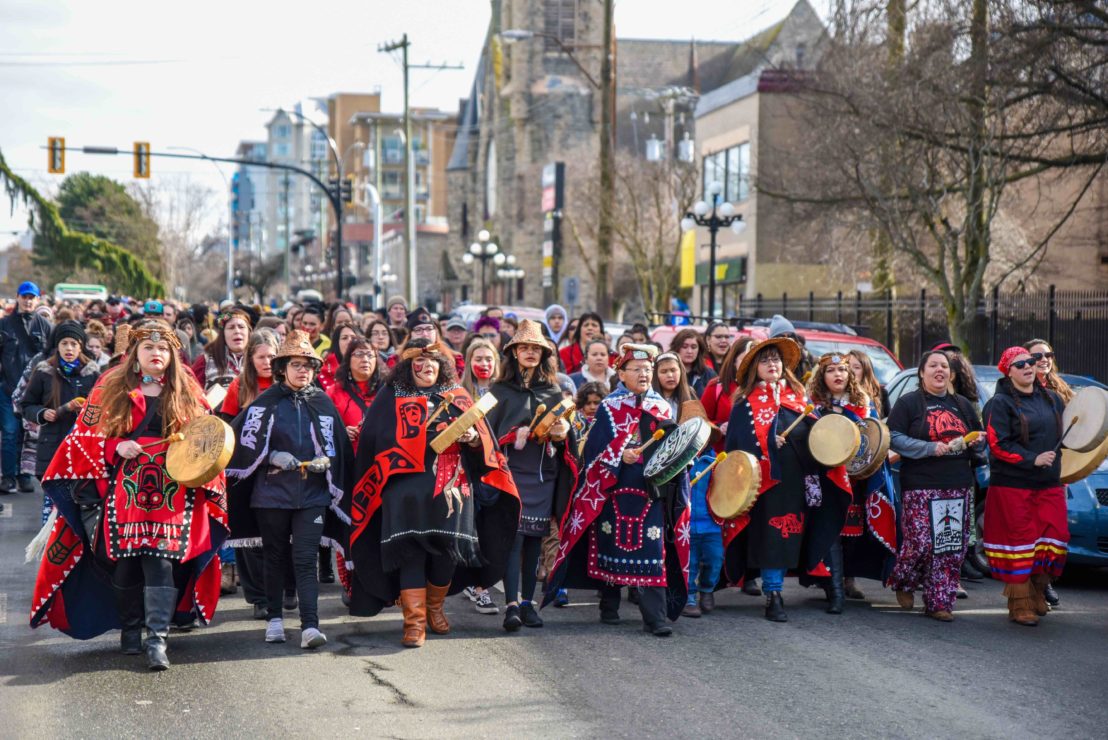
In its final report released last week, the National Inquiry into Missing and Murdered Indigenous Women and Girls (MMIW) described thousands of Indigenous peoples as casualties of a genocide.
From the medical experiments of the 1960s to the residential schools that operated until the 1990s, all the way back to when the first settlers set foot here, this genocide has gone on for decades, if not centuries. Specifically, the report speaks to the ways in which Indigenous women experience a unique form of oppression and how, as a country, Canada has allowed these women to fall through cracks in the judicial system.
“The truth is that we live in a country whose laws and institutions perpetuate violations of basic human and Indigenous rights,” says Chief Commissioner Marion Buller, the first Indigenous woman appointed as a Provincial Court judge in British Columbia, in the report’s preface.
The report is a call to action — to treat this issue as part of an ongoing genocide against Indigenous peoples and to enact systemic change in alignment with the report’s Calls for Justice, of which there are 231.
But will Canada be held accountable for this genocide? Will the people with power step up to take action on the systemic change that is so desperately needed?
The final report is several hundreds of pages long, and addresses the hard truths of genocide, colonization, murder, and rape — violence against Indigenous people, particularly women and members of the LGBTQA2S+ community. But despite it all, in the press coverage that ensued and the comments from the Prime Minister, many have neglected or questioned the report’s finding that Canada had committed an act of genocide. Given that this report was written after years of consultations with indigenous people, arguing about the wording is simply the wrong response. This report should be a wake up call for all Canadians — we are complicit in a genocide.
This is a mantle each individual in Canada must take up on their own, and carry throughout their everyday lives. It’s hard to figure out how best we can each work to uproot this issue — we here at the Martlet certainly haven’t figured that out yet — but the MMIW report’s Calls for Justice is certainly a good place to start.
The Calls for Justice address actions that should be taken in nearly every aspect of Canadian society, including culture, justice, health and wellness, and human security. There’s specific directives for all Canadians, and also for those working in the fields including law, police services, education, social work and welfare, development industries, correctional services, health and wellness, and the media.
The Martlet, as a part of this system, is committed to taking on these calls to action. We will work to convey complex, authentic, and diverse experiences of Indigenous and First Nations peoples in our pages, and support them in sharing their stories. We will make more of an active effort to make sure Indigenous writers, editors, and artists know that their work is needed and always welcome. And above all, we will remain open and actively keep learning about the ways in which our actions have reinforced a violent and oppressive system and the ways in which we can create change.
We encourage you to join us. Read the MMIW report — or in the very least, the Calls for Justice. Inform yourself on the ways in which colonization is a part of your life and your history. And most of all, continue to pursue ways to uproot the systems that have contributed to the genocide of Indigenous peoples in Canada.
Like it or not, this genocide is a reality we must face. Indigenous women are going missing and being murdered at rates that are nothing but horrific — in Canada, in 2019. I’s up to each of us to do what we can to change this course of action and end the decades of genocide and oppression. It won’t be easy, but there is no question that this effort will absolutely be worth the lives it can save.







